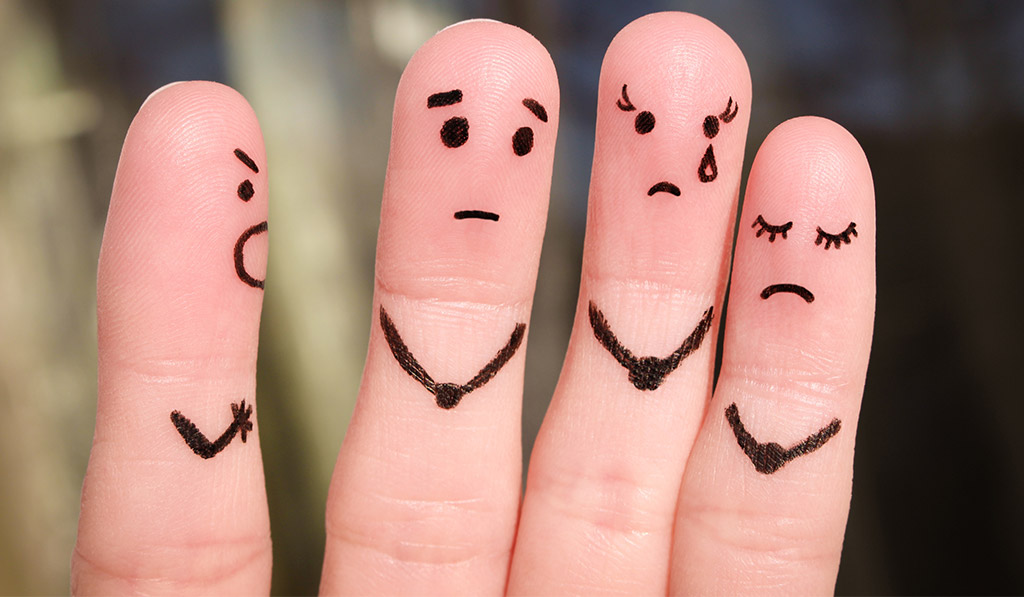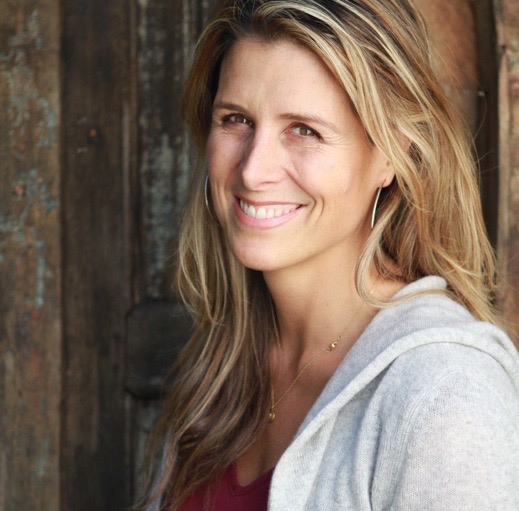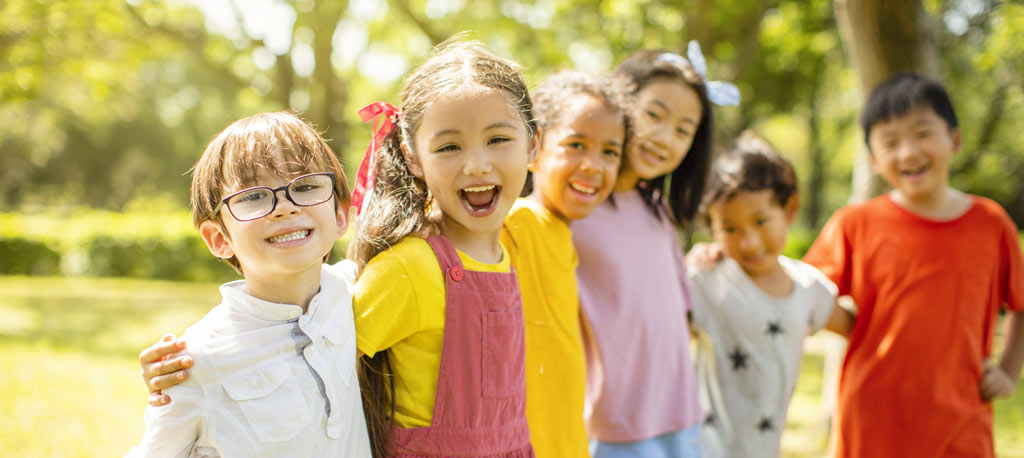Imagine the scene. Your kid comes back from school in a horrendous mood. They’re sporting a sour face, a grumpy attitude, and a short fuse. What do you think the kindest response is? To let it go and be patient, without any positive intervention? Or to try to turn that frown upside down with some much-needed cheering up?
Chances are you probably think the kindest act is the latter… because as parents, we usually want to see our kids smile rather than scowl. But sometimes the truly kind approach is to let kids experience bad emotions. So often, kids aren’t allowed to simply be human. We don’t let them have crappy attitudes or down-in-the-dumps days. But don’t we have those sometimes as adults?

We interviewed Ariane de Bonvoisin, an author, speaker, entrepreneur and expert coach who focuses on life skills, change, happiness and inspiration. She’s noticed that most parents don’t allow their kids to have bad days. In an effort to “fix” the situation, we often end up stifling their true feelings. The trouble is, when we do that, kids may grow up to think something’s wrong with them unless they’re always happy.
“Parents are unkind to their kids by wanting them to be different from what they actually are. The kindest act is to accept your child exactly as they are.”
A lot of people view the world in “good or bad” terms. Anger is bad, crying too much is bad. But Ariane proposes that all emotions are simply communication. We need to focus on what our children are communicating to us. All unkindness is communication, whether we are unkind to ourselves or to others.
So… how do we go about raising a kind kid?
Let’s start by first recognising what our conventional views of kindness are. We usually think of kindness in the form of outward acts towards other people – being polite to the waiter or to your grandparents, giving money to charity, holding the door open, cheering someone up, offering to wash dishes…
Sure, kids could do those things if we request it, but the true heart of being kind to others actually begins with being kind to yourself. If you want to be outwardly kind, you have to start from the inside.
“When kids know how to be kind to themselves, they will naturally be kind to others.”
Top Tips to Raise a Kind Kid
- Role model self kindness – no guilt or negative self talk
- Give 6 compliments to every 1 request for change in behaviour
- Accept all emotional states – let your kids have bad days
- Don’t expect your kids to be kind all the time
- Shield Up – Imagine an invisible shield that only lets in love and kindness
- Wrap up the Day – “pull” out negative emotions at bedtime
- Teach kids that this is a kind world
ROLE-MODELING SELF KINDNESS
The idea of not being good enough is common for kids. Ariane tells us that self kindness is the antidote to that, but it needs to come from the parents first.
Kids need parents who are filling up their own bucket with kindness. When kids are exposed to parents who have guilt and negative self talk or self punishment, they absorb that. By positive role-modeling, parents set the scene and give children the tools they need to love themselves.
“Every parent I’ve ever met always says they just want their kids to be happy. But we don’t really help our tiny humans with that goal…instead, we project lack onto them. Everything becomes about performance and what is expected of them.”
Parents too often are focused on what kids are missing or not doing, or what expectations they haven’t met. Ariane suggests that on average, parents do not compliment enough. A good rule of thumb? Parents should try to give six compliments to every request for a change in behaviour.
KIND ALL THE TIME?
Kindness is a way of being, but it’s also just a healthy emotional state. Sadness and anger are both incredibly healthy emotional states, too.
Ariane believes all kids (and grown-ups!) are kind and unkind. So don’t expect your child to be kind all the time! All emotions are welcome. Kids need to know they’re in a safe space, as opposed to getting in trouble for being unkind.
She advises that we need to teach kids humanity skills. It’s ok to be angry, sad, anxious, etc. Accepting all our emotional states is one of the first steps of self-kindness.
“Feelings are like clouds in the sky. They’ll move through you.”
It’s important for kids to recognise that feelings shift and that they don’t define who they are. Just because you’re sad now doesn’t mean you will be forever. A bad day today doesn’t mean tomorrow will also be gloomy.

Ariane practices a “Wrap up the Day” exercise with her son, Everest (age 6). At bedtime she asks her son if he has any emotions he’d like to let go of. She finds out so much about his day this way! If he has any yucky feelings, he sometimes gives them a name or a shape. Ariane takes deep breaths with him while she pretends to “pull” out the negative emotions from his body. Then her son lets her know when he’s back to feeling calm on the inside.
WHAT IF OTHERS AREN’T KIND?
“Don’t ask why someone was mean. Instead ask what happened to them. Remember: hurt kids, hurt others.”
Kids aren’t always the nicest, right? So what do you do when nasty comments arise? Ariane points out that underneath unkindness is always a cry for help. She suggests that we need to get to the root of the issue to truly understand. But it’s also important to arm kids with an active response to unkindness.
Ariane teaches kids to “Shield Up” and imagine an invisible shield that only lets in love and kindness. This gives kids a tool kit to use when they get into difficult situations. If someone is unkind, kids can choose to let the comments bounce off their shields.
A KIND WORLD
“Teaching kids that this is a kind world — that’s revolutionary. The more we do that, the more kids will see and go out into the world expecting kindness.”
Most parents speak of how unsafe it is in the world, and want to shelter their kids. But protection is not the answer. Instead, we need to give them a model of the world that’s kind, loving and safe. Yes, some people choose to do bad things, but we can still have compassion for them.
“You get what you focus on. What you focus on expands.”
If we all focus on looking for the good in people and being kind to ourselves and others, perhaps our world will be a whole lot kinder. And that’s definitely something to smile about.
This interview first appeared on http://azoomee.com on World Kindness Day, November 13th, 2019.
Ariane currently lives in New York City with her husband Alfie and her son, Everest. Her book series for kids, Giggles and Joy, can be purchased on Amazon. For more info, please visit her website: https://www.arianedebonvoisin.com


